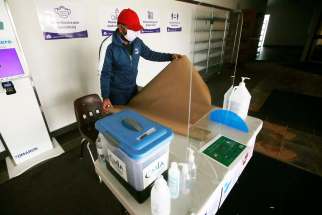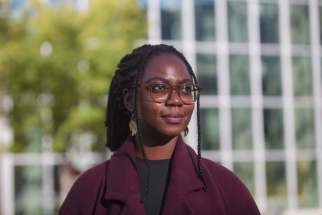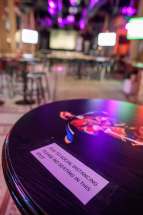Proceeding with caution Local religious groups navigate new pandemic guidelines
Read this article for free:
or
Already have an account? Log in here »
To continue reading, please subscribe:
Monthly Digital Subscription
$0 for the first 4 weeks*
- Enjoy unlimited reading on winnipegfreepress.com
- Read the E-Edition, our digital replica newspaper
- Access News Break, our award-winning app
- Play interactive puzzles
*No charge for 4 weeks then price increases to the regular rate of $19.00 plus GST every four weeks. Offer available to new and qualified returning subscribers only. Cancel any time.
Monthly Digital Subscription
$4.75/week*
- Enjoy unlimited reading on winnipegfreepress.com
- Read the E-Edition, our digital replica newspaper
- Access News Break, our award-winning app
- Play interactive puzzles
*Billed as $19 plus GST every four weeks. Cancel any time.
To continue reading, please subscribe:
Add Free Press access to your Brandon Sun subscription for only an additional
$1 for the first 4 weeks*
*Your next subscription payment will increase by $1.00 and you will be charged $16.99 plus GST for four weeks. After four weeks, your payment will increase to $23.99 plus GST every four weeks.
Read unlimited articles for free today:
or
Already have an account? Log in here »
Hey there, time traveller!
This article was published 29/09/2020 (1897 days ago), so information in it may no longer be current.
Just days after reopening with a trumpet fanfare, the doors of a River Heights church are once again closed to Sunday morning worshippers because of new restrictions on public gatherings.
Although religious groups are not included in the recent code orange guidelines limiting group sizes to 10, the leaders of Westworth United Church felt that the needs of the broader community outweighed their need to worship in person, said Rev. Loraine MacKenzie Shepherd.
“The question is which precaution should we follow and we don’t understand why some groups could still gather,” she said of the decision to move worship back online for Sunday.
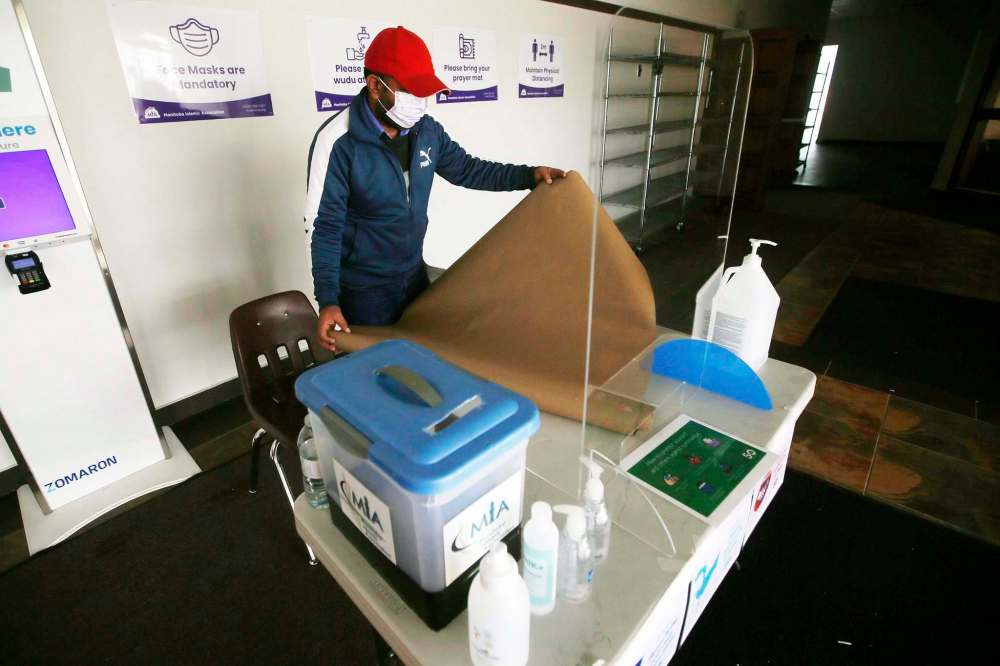
Last week, the province announced that Winnipeg and surrounding communities would be elevated to a restricted level of guidelines, also known as code orange. On Monday, masks became mandatory in indoor public spaces while indoor and outdoor gatherings were limited to 10 to slow the transmission of COVID-19.
Under the code orange guidelines, religious gatherings are restricted to 30 per cent of capacity up to 500, whichever is less, and people attending a service must maintain a separation of at least two metres apart. Alternately, cohorts of 50 people can gather in the same space if the cohorts do not intermingle.
That guideline is confusing and seems contradictory, says Rev. Michael Wilson of Charleswood United Church, which has not opened its doors to public worship since March.
“I have read this over many times this summer and still interpret it as meaning that CUC can have no more than 50 people in a room at any given time,” he said of the most recent pandemic restrictions and the ones that preceded it.
“Oddly, it looks to me like you can only have 10 at a funeral or wedding but 50 on a Sunday service. That doesn’t make any sense at all.”
When asked for clarification, a provincial spokesperson provided a link to the Sept. 28 public health order and repeated the guidelines in the body of the email. The spokesperson also said that everyone in a worship service, including priests, rabbis and ministers, must wear a mask.
One Catholic archbishop urged provincial officials to consult more widely with religious groups to develop guidelines that address their particular needs and concerns.
“Churches are a force in a society that can be helpful,” said Archbishop Richard Gagnon of the Roman Catholic Archdiocese of Winnipeg. He and other religious leaders attended a meeting with Manitoba Infrastructure Minister Ron Schuler in June but Gagnon said he hasn’t been consulted on changes and updates since.
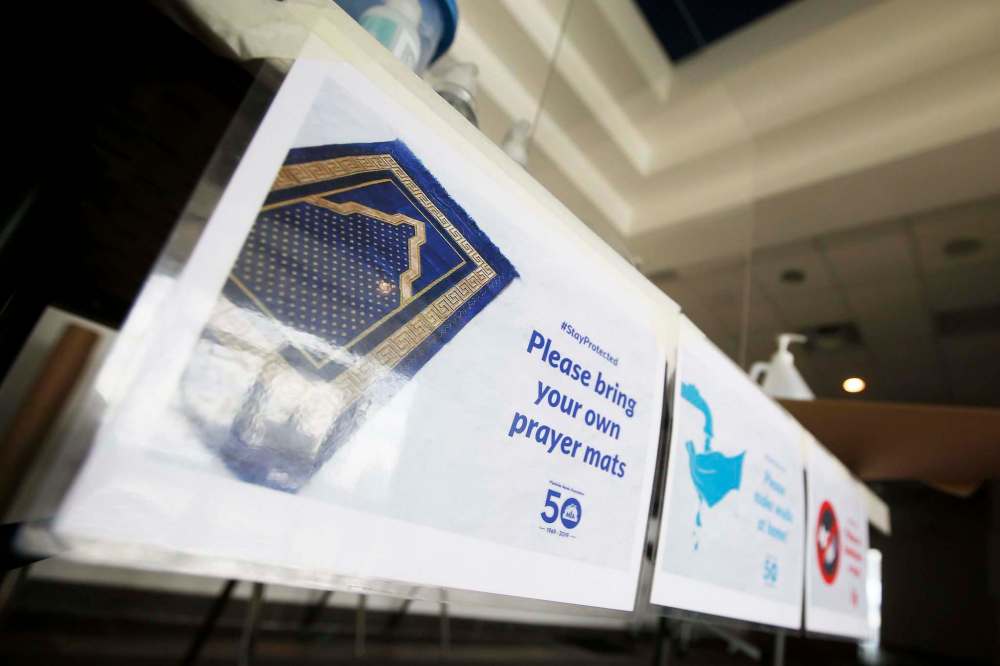
“The situation is changing all the time and I certainly think it’s helpful to keep up with major constituencies.”
That changing situation meant Urooj Danish, office manager at Grand Mosque, spent Tuesday installing larger signs indicating people must wear masks and bring their own prayer mats for services. Since reopening to community prayer services in July, the prayer area and adjacent gymnasium have been marked off with tape to maintain physical distancing, and people need to sign up to ensure capacity doesn’t exceed 200, although they could accommodate 450, said Danish.
“Because we need to maintain social distancing and we want to be extra cautious, we are limiting it to 200,” she said of the Friday prayers, now scheduled for 2 p.m. and 3 p.m., with time between to disinfect the room.
That caution is also being practiced at Shaarey Zedek Synagogue, which will continue to livestream its services and delay meeting in person indefinitely, said executive director Ian Staniloff. He said a few small groups have met to celebrate bar and bat mitzvahs, and all guests wore masks and had their temperatures checked before entering.
The two temples run by Manitoba Hindu Society reopened in summer with restricted hours and group limits of 50. They also livestream their Sunday morning and evening prayers, said Vinod Choudhery, chair of the St. Anne’s Road temple.
The society has already cancelled its large public Diwali festival in November and is considering how to accommodate the upcoming Hindu holy week of Navaratri, when Hindus gather in the temple to pray.
After six months of online worship, Shepherd’s congregation reopened Sept. 20 with a trumpeter belting out a fanfare. A choral group safely distanced across the street also welcomed worshipers with a song. But interest in attending a service dropped significantly once the new pandemic guidelines were announced late last week, she said, so its service last Sunday went virtual for the safety of everyone.
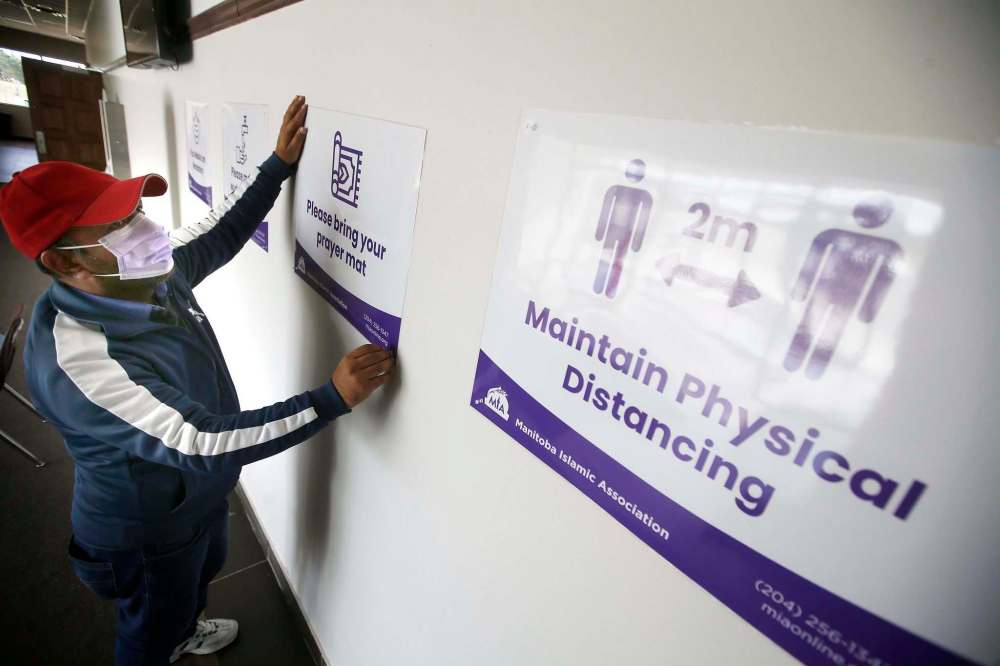
Shepherd said suspending public worship reflects the Christian value of working for the public good.
“We’re following the example of Jesus (Christ) who pushed his followers to beyond the technicalities of the law and embrace the spirit of the law which means doing our best for each other,” she said.
brenda@suderman.com
The Free Press is committed to covering faith in Manitoba. If you appreciate that coverage, help us do more! Your contribution of $10, $25 or more will allow us to deepen our reporting about faith in the province. Thanks! BECOME A FAITH JOURNALISM SUPPORTER

Brenda Suderman has been a columnist in the Saturday paper since 2000, first writing about family entertainment, and about faith and religion since 2006.
Our newsroom depends on a growing audience of readers to power our journalism. If you are not a paid reader, please consider becoming a subscriber.
Our newsroom depends on its audience of readers to power our journalism. Thank you for your support.
The Free Press acknowledges the financial support it receives from members of the city’s faith community, which makes our coverage of religion possible.



